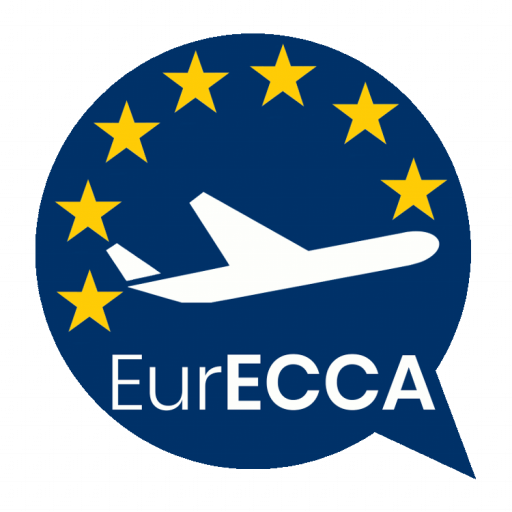European aircrew & passengers welcome completion standard cabin air quality
A diverse group including a European Association, representing National Cabin Crew Trade Unions, a Global Aviation Users Coalition and a Consumer Advocate representing passengers (1), have today called upon the European Member States & Institutions, to support the conclusion of and to promote the draft Standard on Aircraft Cabin Air Quality – prEN17436 “Cabin Air Quality on Civil Aircraft – Chemical Compounds” developed through CEN (2)
Since 2015, this group has joined with an equally diverse group, representing Aviation interests (including aircraft and component manufacturers, airlines) and standard-setting experts, from across Europe to create this draft cabin air quality Standard. It replaces two disputed and now repealed cabin air quality documents (EN4618:2009 and prEN4666) which had been drafted by an association representing the European aerospace industry (ASD-STAN).
The new draft Standard includes measures to prevent exposure to engine oil and hydraulic fumes onboard aircraft during commercial flights. The potential for exposure to these fumes is well documented. The issues of contaminated air arise principally from the design and maintenance of the bleed-air ventilation system which supplies air to the cabin and flight deck which has first been compressed in either the engine or auxiliary power unit compressor (APU).
The work on the draft Standard has been long and arduous, but the group acknowledges and is pleased that a good sustainable consensus has been achieved between all the stakeholders involved in this work. The Stakeholders recognise the fact that Europe offers a framework of standardisation where the needs and concerns of both industrial and societal stakeholders are reflected.
As the draft Standard travels toward the next step of approval, before publication, the group believes that benefits for all stakeholders will not just come from safer air, but also from a Global recognition that the European Standard produces a unique and comprehensive approach to this historic problem. If adopted by airlines and manufacturers, further benefits will accrue through reduced complaints on air quality, lower rates of sick-leave taken as a result of any exposure to contaminated air, a reduction in downtime of aircraft to deal with defects within the engines, APU and air conditioning system, all leading to good cost savings for any airline.
The draft Standard pulls together the disparate nature of current Aviation Standards on Cabin Air Quality, into one rule-making document, thereby producing a definitive Standard that energises and innovates current Regulation. The Standard also addresses recommendations from European and international aircraft accident investigation agencies intended to prevent aircrew impairment caused by breathing oil fumes onboard. If adopted, it will not only aid the Regulator (EASA) in their enforcement role, but it also presents an opportunity for innovation, whilst supporting the obligations of the Single Market; it is a watershed moment for European Aviation Safety!
It is the group’s opinion, that the draft Standard also supports the overall vision of the ‘Next Generation EU’ (3), delivering access to funding for the rapid development of engineering and operational solutions found within this Standard, along with creating the conditions for European Aviation to deliver a world-class flight experience, whilst delivering on Employee and Consumer expectations, thus securing the objectives of the Single Market.
The group provides the following statement:
“The collaboration of experts from around Europe, acting within a balanced and structured environment, have achieved what some thought was impossible; a Standard fit for purpose to deal with contaminated air onboard aircraft. We have valued the opportunity to work alongside our industry and standard-setting colleagues to develop this standard which, if implemented, will facilitate the supply of safer ventilation air to the passenger cabin and flight deck and, in doing so, will improve both the flight experience and flight safety. The document is approaching its final stage and we hope that it will be universally approved and adopted into the lexicon of Aviation Standards (4). We believe that the new Standard provides a world-beating reference on how to manage the issue of contaminated air on aircraft and not only stands above current Standards Regulation, but that it will deliver continued stakeholder consultation, innovation, solutions and benefits for all. We call on the European Commission & its Institutions, the European Parliament and EASA, to formally recognise the value of the work carried out by a diverse range of Stakeholders, and to ultimately promote the benefits of the Standard to manufacturers, airlines, employees and passengers”.

Press Notes:
- -List of Signatories: Xavier Gautier (Secretary General): European Cabin Crew Association (EurECCA). Captain Tristan Loraine (Spokesperson): Global Cabin Air Quality Executive (GCAQE). Frank Brehany (Independent Consumer Campaigner (frankbrehany.com)).
- – The European Committee for Standardisation (CEN) brings together the national standardization bodies of 34 European countries
- – https://ec.europa.eu/commission/presscorner/detail/en/ip_20_940
- – European Aviation is regulated by EU Regulations and associated Standards. Regulation is described as ‘hard law’, in other words it must be complied with, whereas, current Aviation Standards are not legally binding. The principal ‘hard law’ device is EU Regulation 2018/1139; this regulates everything relating to Aviation, including the operation of EASA. This principle Regulation is supported by implementing Regulations. Regulation is supported by Aviation Standards. These Standards are made by EASA in Consultation principally with the Aviation Industry and are generally open to online Public Consultation through the EASA website. The following are the current Standards that define methodology to support Regulation: Certification Standards (CS) (these are non-binding technical Standards); Acceptable Means of Compliance (AMC) (these are non-binding Standards, they are not legislative in nature and cannot create additional obligations on regulated parties – there is currently a presumption of compliance); Alternative Means of Compliance (AltMoC) (these are non-binding Standards but the regulated party loses the presumption of compliance and must prove compliance with Regulation). Scenarios set out in current Aviation Standards tend to deal with ‘failure conditions’. The proposed Standard discussed in this release extends beyond the current limitations found in Aviation Standards, thereby producing a Standard that is fit for purpose for the Aviation Industry and its users. It should be noted that CS 25.831 (Amendment 23 – 2019) at 4) states: “4. Probable failure conditions. For probable failure conditions, the ventilation system should be designed to provide enough fresh air to prevent the accumulation of odours and pollutants such as carbon dioxide. Under these conditions, the supply of fresh air should not be less than 0.18 kg/min (0·4 lb/min) per person for any period exceeding five minutes. However, temporary reductions below this flow rate may be accepted, provided that the compartment environment can be maintained at a level which is not hazardous to the occupant; for this purpose, the applicant may refer to international cabin air quality standards”.
- – Please Note: The following spokespersons are available for comment. Please indicate your requirements to any of the following and further assistance will be provided:


